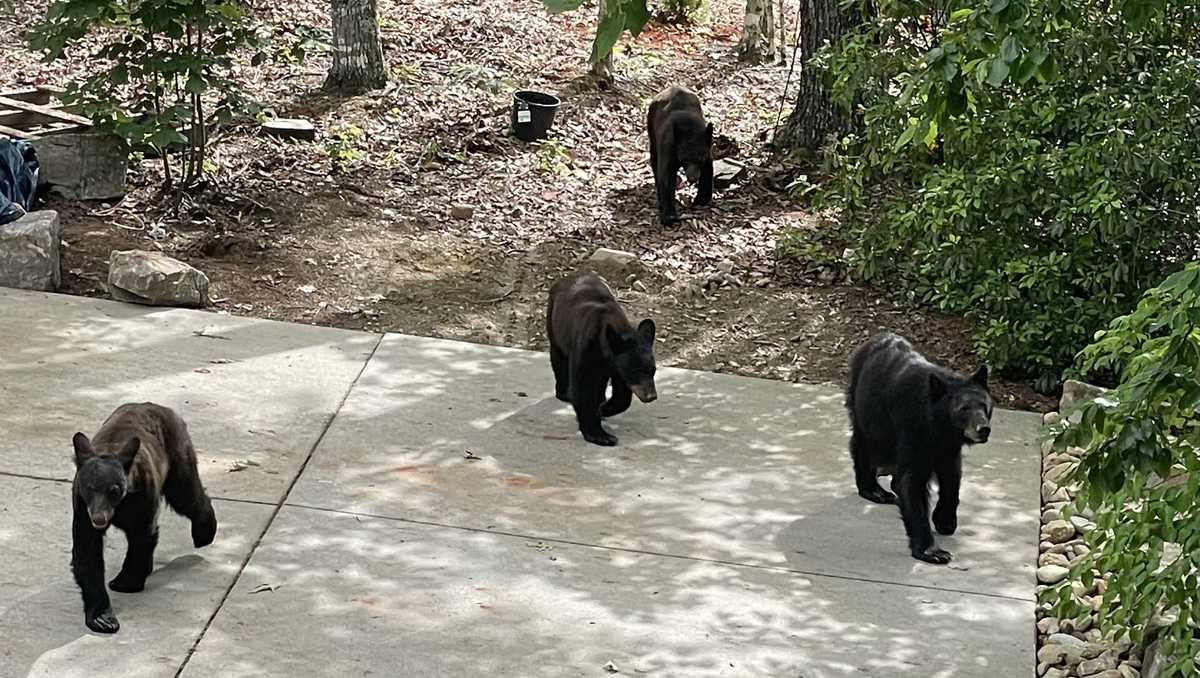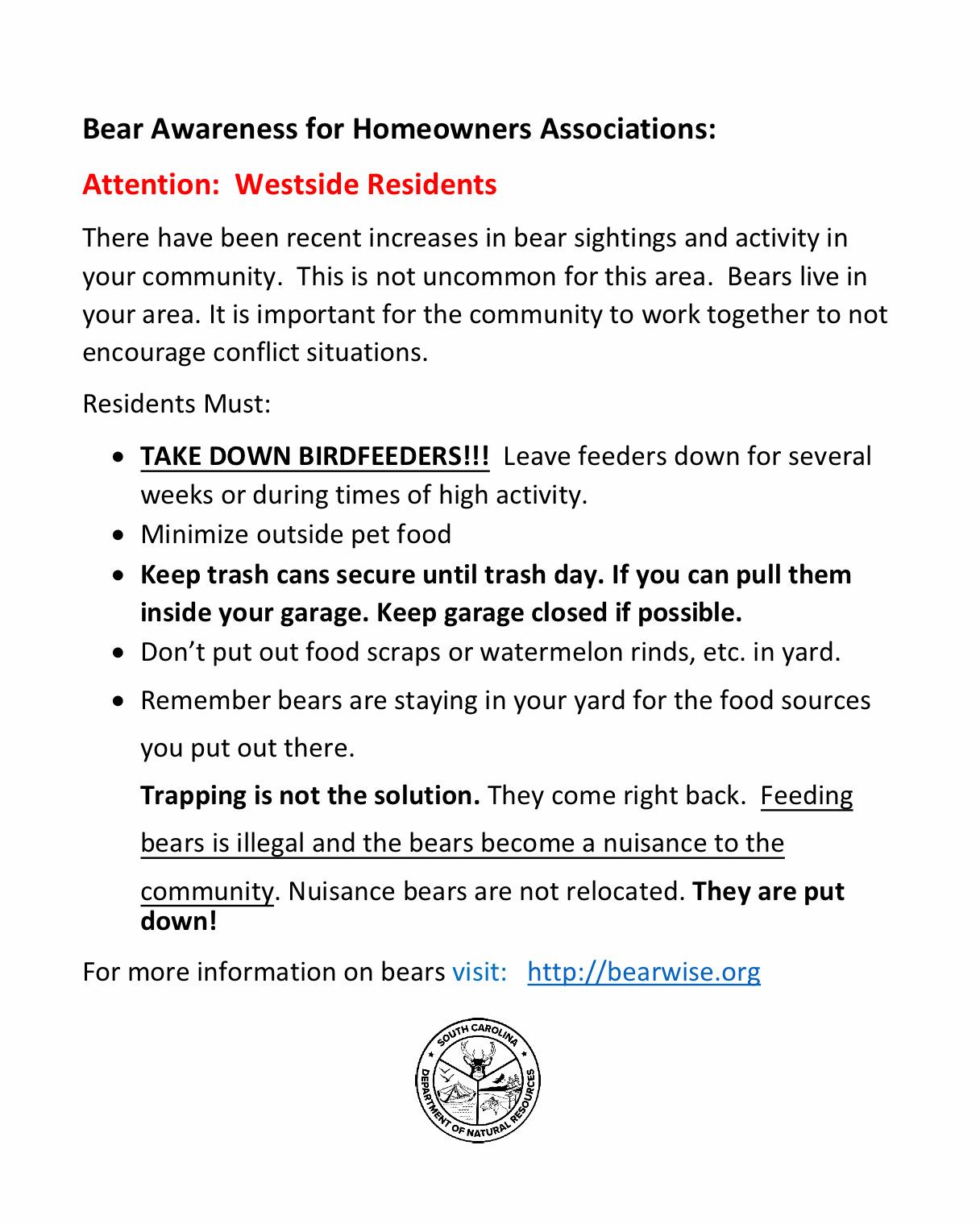Upcoming Council & Committee Meetings For June 2–6, 2025
Monday, June 2
5:00 PM – Planning and Development Committee
Location: Committee Meeting Room
Livestream: Watch Here
Tuesday, June 3
4:00 PM – Roads, Infrastructure, and Public Works Committee
Location: Committee Meeting Room
Livestream: Watch Here4:30 PM – Committee of the Whole
Location: Committee Meeting Room
Livestream: Watch Here6:00 PM – County Council Meeting
Location: Council Chambers
Livestream: Watch Here
Greenville County Summer 2025: Dive into Adventure with Parks and Recreation
One of the most essential and often overlooked functions of local government is enhancing quality of life. Great communities don’t happen by accident; they are built through intentional investment in parks, recreation, youth development, and accessible wellness programs for all ages. Greenville County’s summer offerings are a direct reflection of that commitment. These programs aren’t just about fun, they’re about fostering community, promoting health, supporting working families, and giving every resident the opportunity to thrive. Whether you’re a parent looking for meaningful summer enrichment for your child, a neighbor seeking ways to stay active, or someone ready to connect with nature and your community, these opportunities are here for you.
Youth Camps
Elementary Summer Day Camps
Dates: June 2 – August 1 (Closed July 4)
Ages: 6–11 (Entering Grades 1–6)
Locations: Brutontown, Freetown, Mt. Pleasant, Slater Hall, Sterling, Staunton Bridge, Phillis Wheatley
Hours: 9 AM – 5 PM (Early arrival at 7:30 AM; late stay until 6 PM)
Cost: $460 for 9 weeks; $150 deposit required
Details HERE
Teen Leadership Camp
Ages: 12–15 (Entering Grades 7–9)
Locations: Mt. Pleasant & Sterling Community Centers
Focus: Leadership development, community engagement, and fun activities
Details HERE
Camp Kaleidoscope
Activities: Arts & crafts, nature exploration, themed weeks, field trips to waterparks, movies, trampoline parks, bowling, and skating
Contact: Joni Dilworth at jdilworth@greenvillecounty.org
Details HERE
Camp Spearhead
Overview: Eight one-week residential sessions tailored for individuals with special needs, offering a supportive environment filled with traditional camp activities
Details HERE
Youth Sports
Baseball & Softball
Ages: 5–18
Registration: Through local Little League associations
Details HERE
Flag Football
Registration Period: January 8 – January 26
Ages: Varies by association
Contact: Rich Dixon at rdixon@greenvillecounty.org or 864-467-3460
Details HERE
Youth Football
Ages: 7–12
Registration: Through local Youth Associations
Details HERE
Aquatics & Water Fun
Swim Lessons
Ages: Infants through adults
Location: Greenville County Aquatic Complex
Approach: Fun, creative instruction for all skill levels
Details HERE
Waterparks
Parks: Discovery Island, Otter Creek, 7th Inning Splash
Season Passes: Available for unlimited summer fun
Rentals: Host birthday parties and private events
Details HERE
Adult Sports
Men’s Summer Basketball 5v5
Registration: May 1 – May 30
League Start: June 8
Cost: $275 per team; $30 per game referee fee
Adult Soccer Leagues
Seasons: Summer and Fall
Locations: Southside Park and Pavilion
Parks & Recreation
Find a Park
Overview: Over 55 state-of-the-art parks and facilities
Features: Athletic fields, playgrounds, picnic shelters, trails
Details HERE
Rentals & Events
Spaces: Shelters, athletic fields, community centers
Events: Host your next tournament, race, or social gathering
Details HERE
Community Gardens
Locations: Four across Greenville County
Cost: $60 per bed annually
Details HERE
Senior Programs
Activities
Offerings: Social, educational, spiritual, mental, and recreational programs
Locations: Berea, Mt. Pleasant, and Sterling Community Centers
Lunch: Nutritious meals provided in partnership with Senior Action, Inc.
Details HERE
Let’s make Summer 2025 the most active and enjoyable yet!
Bear Activity Alert in District 19
Recently, I was contacted by a friend and constituent who reported increased bear sightings in District 19. These sightings are not isolated, and it’s clear that black bear activity is on the rise in several parts of the county, particularly in areas where development is expanding into what were previously more rural, wooded zones.
I take these concerns seriously and want residents to know that your safety, and the safety of our local wildlife, is a top priority. I also recognize that some of this increase in bear presence is directly tied to our growth as a county. As we continue refining our development practices this year, we will keep wildlife impacts front of mind to ensure we’re being responsible stewards of the land and our natural neighbors.
In the meantime, it’s important that everyone in affected areas takes proactive steps to minimize risk. The attached guidelines provided by BearWise and the South Carolina Department of Natural Resources (SCDNR) offer clear, practical tips to help reduce bear attractants around your home. From securing trash cans to removing bird feeders and pet food, these small actions can make a big difference in keeping bears at bay, and in preventing tragic outcomes for both people and animals.
Please remember: feeding bears, even unintentionally, is illegal and dangerous. Bears that become too comfortable around humans often end up being euthanized, as relocation is rarely an option. Let’s do our part to avoid that outcome by being smart, informed, and neighborly.
If you spot a bear or signs of bear activity in your area, let your neighbors know and consider reporting the activity to SCDNR. We live in one of the most beautiful parts of the country, part of that beauty includes learning to coexist responsibly with the wildlife around us.
I am so thankful for people like my friend Joe McLaughlin II, who has been proactive in addressing our districts and county’s needs. He provided the following info that he received when reaching out to SCDNR and bearwise.org
For more information and safety resources, visit BearWise.org
Town Hall Notice: Help Shape Ongoing Hurricane Helene Recovery Efforts
The State of South Carolina has been awarded $150 million in federal funding through the Community Development Block Grant – Disaster Recovery (CDBG-DR) program to support long-term recovery from Hurricane Helene.
These funds, administered by the South Carolina Office of Resilience (SCOR), will target critical needs in housing, infrastructure, and disaster mitigation, especially in low-income areas still feeling the storm’s impact.
Now it’s time for the public to weigh in.
Public Town Hall:
Date: Tuesday, June 3, 2025
Time: 6:00 PM – 8:00 PM
Location: Greenville Water Community Room
517 W. Washington St, Greenville, SC 29601
SCOR will present the Draft Action Plan at 6:00 PM. Attendees are encouraged to ask questions and provide input on how the funds should be used.
What’s on the Table?
The Draft Plan proposes funding for:
Rebuilding and rehabilitating single-family homes
Affordable rental housing repairs
Voluntary buyouts in flood-prone areas
Infrastructure improvements and hazard mitigation projects
Visit scor.sc.gov/helene to read the Draft Plan and submit your feedback.
Public comments, both online and in person, will shape the final plan submitted to HUD.
SCOR’s Disaster Case Management (DCM) team will be available during the meeting to assist anyone still facing long-term challenges from Hurricane Helene. They’ll help you build a personalized recovery plan and connect you to critical resources.
Or call the DCM hotline directly: 803-898-2511
Accessibility & Contact:
For special accommodations or more information:
Phone: 803-413-3213
Email: media@scor.sc.gov
Mail Comments To:
632 Rosewood Drive, Columbia, SC 29201
Stay updated: scor.sc.gov/public-engagement
Greenville County’s Approach to Affordable Housing: More Than Just a Budget Line Item
As the Greenville County budget for the upcoming fiscal year moves through public scrutiny, one item has sparked significant conversation: the reduction in the General Fund line item for affordable housing. While I understand the concern this has caused among some constituents and advocacy groups, I believe it’s important to clarify something that’s been missing from much of the narrative: this single budget line does not tell the whole story.
In fact, Greenville County continues to fund housing-related initiatives at meaningful, even growing, levels through a diversified and sustainable strategy. Here’s what that actually looks like in the budget cycle:
Confirmed Federal Funding Streams:
Greenville County has already been awarded over $4.1 million in dedicated federal housing funds, including:
$2,849,153 from the Community Development Block Grant (CDBG)
$1,050,123.13 from the HOME Investment Partnerships Program (HOME)
$248,799 through the Emergency Solutions Grants (ESG)
These are real, allocated dollars, not projections or pipe dreams, supporting everything from affordable housing construction to emergency shelter and homelessness prevention.
Loan-Based Financing for Major Projects:
In addition to these grants, the County also has access to $13.36 million in Section 108 Loan Guarantee Authority. This allows us to fund larger-scale development and infrastructure projects that make affordable housing possible, without inflating our General Fund or increasing property tax burdens.
GCRA: A Self-Sustaining Powerhouse for Housing
The Greenville County Redevelopment Authority (GCRA) is one of the most underappreciated engines driving affordable housing in our region. Operating largely outside of the General Fund, GCRA generates its own annual revenue through a sizable rental property portfolio, which, according to recent estimates, brings in millions of dollars each year.
That income is then reinvested into:
Home repair and rehabilitation grants
Neighborhood revitalization programs
Affordable rental housing development
This model provides sustainable, recurring funding for housing without pulling from core county revenues.
Strategic Partnerships Extend Our Impact
GCRA’s work is further amplified by partnerships with leading housing-focused organizations such as:
Habitat for Humanity of Greenville County
Homes of Hope
Rebuild Upstate
CommunityWorks, Inc.
These partners and others bring additional financial leverage, workforce development, and on-the-ground implementation capacity, meaning your tax dollars (and federal grants) go further and faster toward real solutions.
Additional Investment Streams:
We’re also plugged into other funding sources that many don’t see in the budget headline:
The Greenville Housing Fund (GHF) invested $2.26 million in 2024, facilitating 283 new homes, and has another 332 homes in development for 2025.
GHF is applying for a $5 million HUD Pro Housing Grant to further scale its reach.
The South Carolina State Housing Authority is offering $32.9 million statewide through the Small Rental Development Program (SRDP), which we actively pursue for eligible local projects.
So Why Reduce the General Fund Line?
Because we believe in smarter government, not just bigger government.
Too often, local governments treat property taxes like a blank check, expanding general fund programs without asking if there’s a better way. At the request of tax payers, we are charting a different course.
Core property tax revenue should support core services: public safety, roads, EMS, and basic infrastructure. When it comes to housing, we’re showing that a smarter, more diversified approach can achieve more without placing more strain on taxpayers, especially in a year marked by reassessments and inflation.
Let me be clear: we are not backing down from the housing challenge. We are changing the playbook. We’re prioritizing sustainability over symbolism and leveraging partnerships over bureaucracy. The County’s total investment in affordable housing is larger and more effective than ever, but you won’t see it all in one line item on a spreadsheet.
This Council is committed to building a Greenville County that is affordable, livable, and fiscally responsible, not just for today, but for the generations that follow.
Chairman’s Corner: Building Trust Before Discussing Taxes
This week, we approach the second reading of the proposed Greenville County budget, an important step that not only outlines our spending priorities but also signals our values as leaders. As Chairman, I take that responsibility seriously. And with it comes a commitment I made last year when a proposed sales tax was defeated: If the people said “no,” then it was on the new council to help find a better path forward.
Not one that just shifts the burden. But one that finally begins to fix a broken model that has leaned far too heavily on property owners for too long.
Let’s be honest, property taxes were never meant to shoulder the full weight of modern infrastructure needs in one of the fastest-growing counties in the Southeast. That’s not smart growth. That’s lazy math. And it’s exactly why I believe it’s time for a bold but responsible shift, away from taxing roofs and land, toward revenue models that are fairer, smarter, and more sustainable.
As far as any current discussion you may be hearing about another sales tax, that conversation is not being led by the Chairman of Greenville County Council, nor by a majority of this current Council. In fact, before I can even consider having such a conversation about it with my colleagues, we still have major work to do.
Here’s some of the things that must happen FIRST:
We must implement meaningful impact fees.
It’s past time that developers pay their fair share for the future roads, schools, and emergency services their projects require. Property owners shouldn’t be left holding the bill after the fact. Impact fees are how we plan for growth before it arrives, not after it’s already created a mess.We must scrutinize our own government.
I’ve helped push forward a new Oversight Committee which will soon be requesting department performance audits to ensure our county departments are operating efficiently. We owe it to taxpayers to clean up our own house before simply looking for more money elsewhere.We must lock in sustainable road funding through existing revenues wherever possible.
One major shift we’re considering is the reallocation of Fee-In-Lieu-of-Tax (FILOT) revenue to directly support our road program. While our initial plan was around $40 million per year, due to timing and the constraints of the Greenville County Schools’ pre-existing budget, we’re now closer to $36 million annually. Still, this is far above what we’ve invested in roads over the last 20 years.
Does this cover the $2 billion we once projected a sales tax could generate? Not entirely. But it makes a major dent, and we’re doing it without increasing the burden on our citizens.
Together, these reforms begin to create a transparent blueprint for smarter governance, one where we explore every possible solution before even thinking about another tax. If, and only if, we’ve done everything in our power to shift toward efficiency, fairness, and proactive funding mechanisms, then and only then can we have an honest discussion about a sales tax.
Even then, it must meet three criteria:
It must at least partially offset, not add to, current tax burdens, particularly on property owners.
It must be limited in scope and duration, not the never-ending tax train we see too often.
It must be placed directly in the hands of the people at the ballot box, not decided behind closed doors by a few elected officials or committee members.
I’ve heard it from other leaders: a 10-year sales tax would bring in new money year after year. And they’re not wrong, it would. But I’m not interested in “easy.” I’m interested in earning the trust of our citizens. IF we ever go down that path again, it must be citizen-led, time-limited, reflective of needs vs wants, and it must go away once it’s done its job, just like taxes were originally intended to do.
Even Lincoln only used temporary taxes to fund the war. He didn’t ask Americans to bankroll Washington for eternity.
I wish Washington was still accepting of that mindset.
After only three years in office, if there’s one thing I’ve learned, it’s this: new taxes should never even be considered without a vote of the people. Period.
We still have a ways to go before we’ve earned that kind of trust again, but I am willing to do what is needed to get there. This Council is willing to lead reforms, question the system, push for audits, and demand that growth pays for itself. That’s how we get Greenville on the right track, not just for today’s residents, but for generations to come.
As always, have a blessed and prosperous week Greenville County!








Thanks so much for the update, and all the work you and council are doing on our behalf.
Good afternoon Chairman (Benton) Blount!
Thank you for your insight and continued efforts on council.
Basic Infrastructure / General Fund. One issue that I'm seeing continually is the lack of code enforcement on public properties; which is taking away revenue from legitimate stores in our area. Examples include: setting up 'shop' in Berea Plaza from the back of an suv; selling food, and various other material goods. Setting up hot / drink stands in the parking lot near QT (Fars Bridge / White Horse) out of an suv. The many food trucks setting up 'wherever and whenever'. Selling flowers on street corners of Cedar lane and Blue Ridge. Fruit / watermelon trucks selling fruit / vegetables from (?), wherever and whenever. Scattered make-shift car washes in parking lots; draining hazardous waste (oils, coolant, brake dust,etc.) into our precious water supply (Saluda, streams) and contaminating the soil. Fencing in commercial lots (Cedar Ln / Batson Dr) and putting in makeshift food establishments / barber shop, etc...
Is it my obligation as a tax-paying citizen to report this, or Law Enforcement / Code Enforcement to step up and take action on this? When the Govt. entities turn a blind eye to this, it eventually gets accepted as o.k., which is turning some areas in the county into a place where investors or people don't want to move near.
Thank you again,
Bill D-19